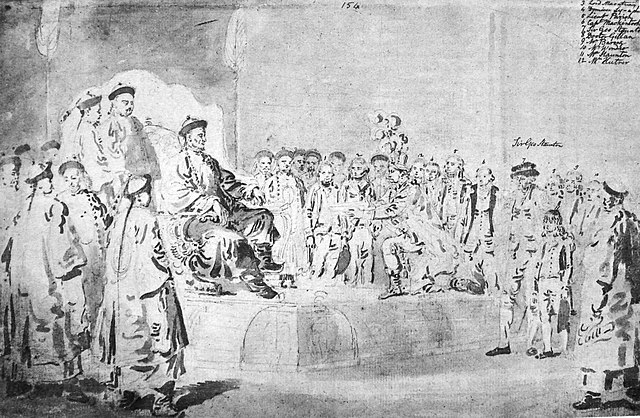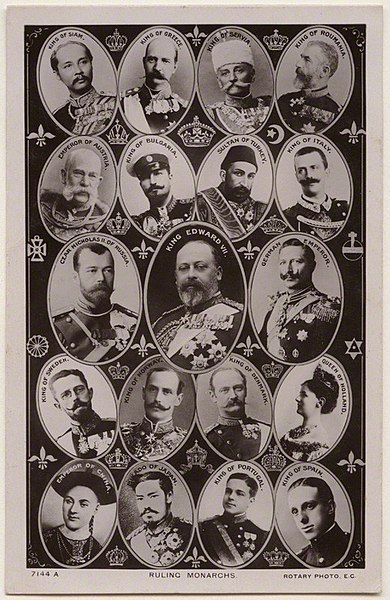A royal court, often called simply a court when the royal context is clear, is an extended royal household in a monarchy, including all those who regularly attend on a monarch, or another central figure. Hence, the word court may also be applied to the coterie of a senior member of the nobility. Royal courts may have their seat in a designated place, several specific places, or be a mobile, itinerant court.
The Sikh 'Court of Lahore'.
The Macartney Embassy. Lord Macartney salutes the Qianlong Emperor, but refuses to kowtow.
The Dutch court is known for old traditions.
One of the series of the reliefs of the Persian and Median dignitaries at Apadana stairs of Persepolis, all with weapons, but in a casual air—a rare depiction of an ancient court ceremony.
A monarchy is a form of government in which a person, the monarch, is head of state for life or until abdication. The political legitimacy and authority of the monarch may vary from restricted and largely symbolic, to fully autocratic, and can span across executive, legislative, and judicial domains.
The Weld-Blundell Prism, inscribed with the Sumerian King List
King George III of the United Kingdom, portrait by Allan Ramsay, 1762
King Salman of Saudi Arabia is an absolute monarch.
Postcard of ruling monarchs, taken in 1908, between February (accession of King Manuel II of Portugal) and November (death of the Guangxu Emperor)








